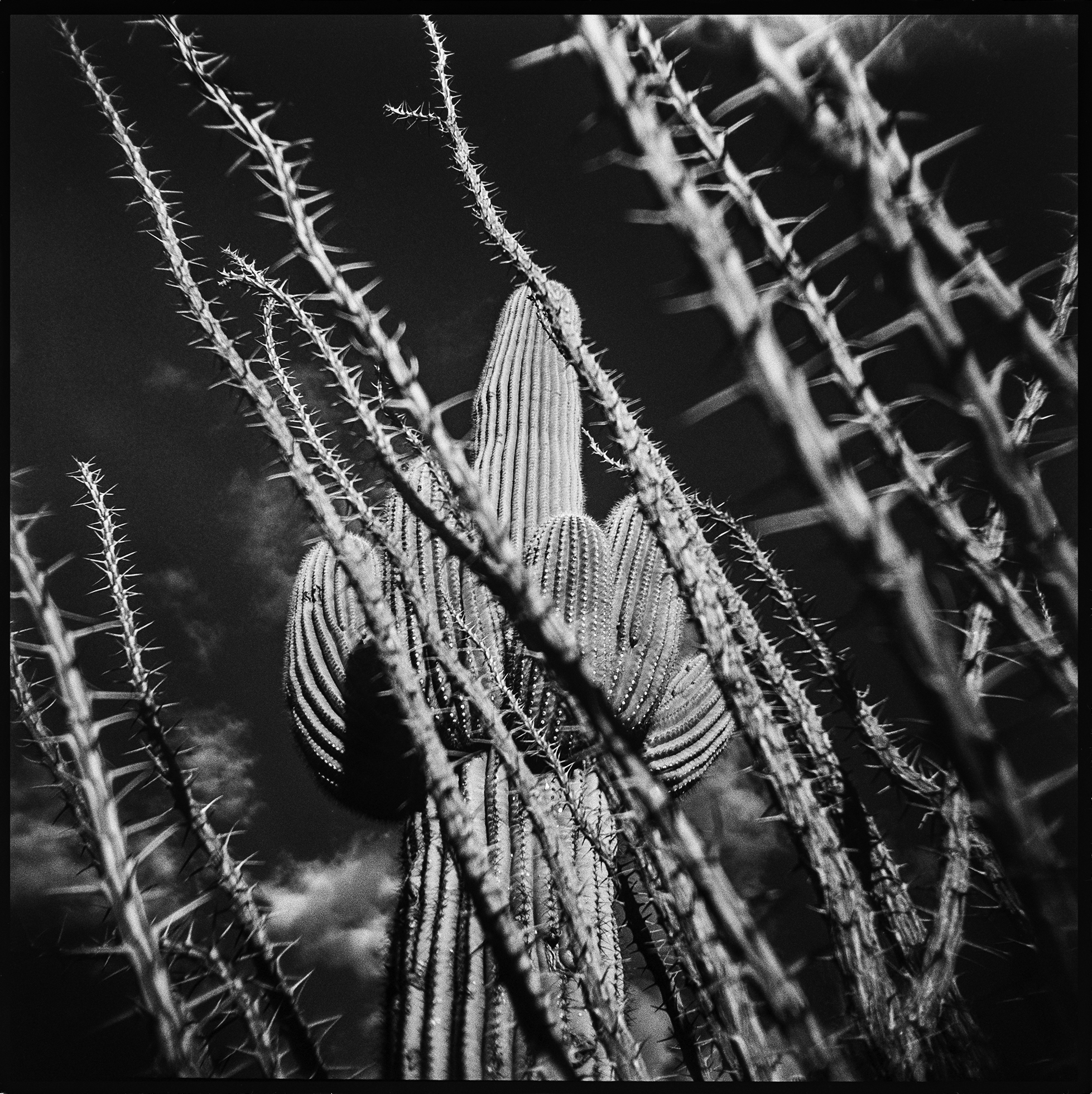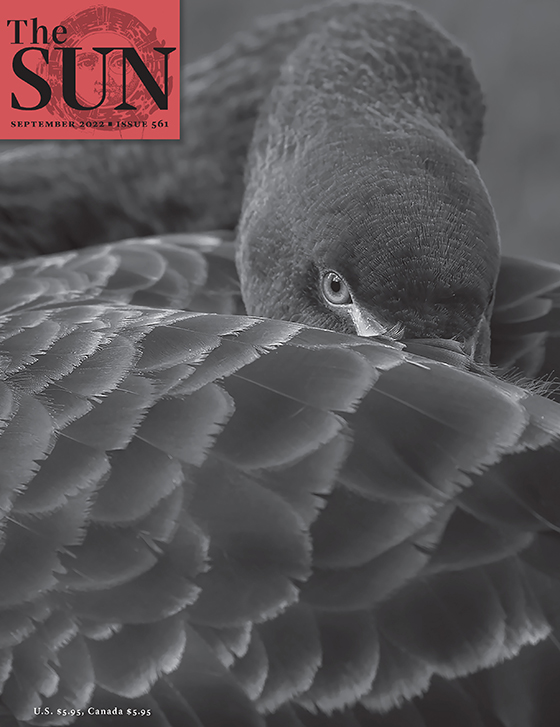That fall the biologist and I lived in casitas next door to each other on former ranch land snarled with paloverde trees, overlooking a low city skyline and the orange mountains beyond. Some nights we would load his black pickup with a cooler and skeins of netting and a fold-up table and boxes of collapsible traps, and, along with two virologists from the university, we would drive into the desert in search of bats.
A science writer and wilderness guide, I followed my curiosity, giddy to be invited. These were strange and intoxicating expeditions. At the cliff-lined ends of forest-service roads or the edges of muddy cattle tanks, or in the cricket-loud groves where saguaros gave way to oaks, I would help stretch nets on moonless evenings. Bats fluttered into the thin weave and were trapped, toothy and screaming. The thick-gloved scientists would untwine them, place them in paper lunch bags, and catalog them like library cards in a small Tupperware bin. The biologist would weigh the bags one by one on a hanging scale. He’d blow belly fur aside to sex the bats. He’d spread their filmy wings against the glare of a headlamp to evaluate the fine joints and bones. He’d press their squirming bodies flat against the table while a virologist would hole-punch papery sections of wing skin, then pierce a vein and suction blood in careful crimson pulls.
The bats twisted in the biologist’s grip, sinking needle-like teeth into his leather glove, their squeaks like Morse-code pulses. He would hold them high when he released them, so they could woozily swoop before catching air. When I tried photographing this, the movement came across as a parabolic trail of light in my flash: the plunge, the rise, the blink of departure.
Back at the ranch we unloaded the traps from the truck, and then the biologist undressed me and gripped my hips and walked me backward into his bedroom. Later we’d pop Pacificos on his porch and trace the constellations through the smoke from the chimenea, which we fed with wood that our landlords had told us not to burn.
The biologist had a scientist’s body: tall and strong but not sculpted. Crooked but clean teeth. Slick, dark hair. I’d straddle him, and he would loll his head against the back of the couch and ask me, “Do you know how beautiful you are?”
I liked the way he looked at me — as if I were drinkable — and the yearning melodies he’d write for me on his guitar, and the way he smiled as he placed a whiskery kangaroo mouse in my hand: long-footed, silky, scarcely more than a furry heartbeat, its cheeks stuffed with seeds from the biologist’s trap. It rested there in my open palm, trembling with its own pulse. It left only when I nudged it back toward freedom.
Then came a night when a wildfire tore through my childhood home, and I slept over at his place, my heart haywire, phone near my head so I would hear my mother’s calls as she evacuated along flickering country roads. The biologist reached to tug at my underwear, and I said no and pulled away. I explained that the only kind of touch I wanted that night was a chest to lean against, a nearby heartbeat to keep me anchored. Later, when I awoke blearily to his hands thrusting between my legs, my second no leapt out of my throat like that quick bodily thrash that sometimes comes before sleep. It made me wonder if the first no had registered. Again I loosened his hold. I checked my phone for bad news. I curled at the side of the bed like an animal in a trap.
As winter closed around us, my disquiet deepened, and so did the biologist’s infatuation with me. One night, while we were walking back together from his truck, he reached for me and told me that he loved me. I thought back to the night when his hands had moved persistently toward his own comfort instead of mine, and I told him that I couldn’t love him back.
I retreated into my casita to cook dinner alone. I listened to his footsteps crunch on the gravel as he made his way home; listened to him fill the night with amplified blasts from his guitar. His porch light drew moths from the dark courtyard between us.
When I started bringing home new men that spring, he sent unwelcome text messages in the wee hours:
Looks like dating is going well for you.
You seem to be happy.
I broke my lease, loaded my succulents into my car, and swept books into boxes. I did not say goodbye. I left the windows open when I walked out, curtains fluttering like wings.
My nights belong to me now, but those expeditions to the edge of the desert linger like afterimages: The way he unsnarled a badly trapped bat that had been stuck in the net for too long. How he worked quietly in his headlamp’s glow to untangle it without breaking a bone. How, too, he opened his catches’ wings like umbrellas, flattened them like flowers in a book. I can still hear the scrabble and agitation of tiny bodies clattering inside their paper prisons.
I remember in particular the time one of the bats broke loose: the disorienting flurry and upward flash, as if rage had taken the form of a dark little body. I remember the wet bag softened by urine and torn open from the inside, the three bewildered scientists startling and looking up from their vials of fluids, the tight circle of light around the table where a long exposure from my camera might have captured a single, swift, ascending streak.





